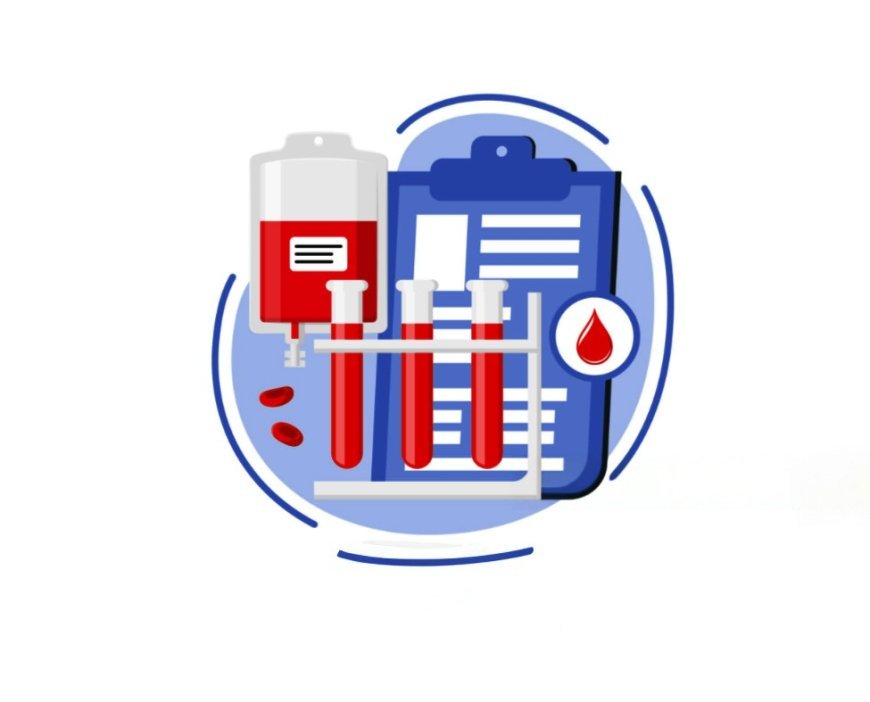The Importance of Choosing the Right Blood Bank

When it comes to healthcare, some choices are too critical to be left to chance—and choosing the right blood bank is one of them. Blood is life-saving in more ways than most people realize. From emergency surgeries and accident victims to cancer treatments and organ transplants, thousands of patients depend on healthy, safe, and timely blood transfusions every single day.
Yet, not all blood banks are created equal. In Pakistan, the role of credible and accredited blood banks has become even more important due to increasing demand, rising awareness of safe transfusion practices, and the growing need for voluntary donors. Whether you are someone considering blood donation or a family in need of a transfusion, here’s why selecting a trustworthy blood bank can truly save lives.
Why Safe Blood Matters
Blood is not just another medical supply—it’s a living tissue, carrying oxygen and vital nutrients throughout the body. Unsafe or contaminated blood can pose serious risks, including life-threatening infections like HIV, Hepatitis B and C, and other transfusion-transmitted diseases. That’s why the World Health Organization and national health authorities stress the importance of proper screening, safe storage, and qualified handling of blood products.
A reputable blood bank follows stringent protocols to ensure every unit of blood is thoroughly tested and stored in hygienic, temperature-controlled environments. The difference between a good blood bank and an unregulated one can literally mean the difference between life and death for a patient.
What to Look for in a Good Blood Bank
When choosing a blood bank for donation or transfusion, here are a few key things to look for:
-
Accreditation and Licensing: Always check whether the blood bank is licensed by the relevant health authorities. Accredited facilities are regularly inspected for compliance with safety standards.
-
Screening Procedures: Reliable blood banks follow standard screening for infectious diseases and conduct cross-matching to ensure compatibility.
-
Qualified Staff: Trained medical technologists, hematologists, and lab technicians are critical to safe blood handling.
-
Voluntary Donor Programs: Many leading blood banks run voluntary donor drives and maintain well-organized donor databases to ensure a steady supply of healthy blood.
-
Transparent Practices: A trusted blood bank will always share clear information about their processes and willingly answer your questions.
One of the best-known examples in Pakistan is NIBD (National Institute of Blood Diseases & Bone Marrow Transplantation). NIBD’s blood bank is recognized for maintaining rigorous standards and supporting complex treatments such as bone marrow transplants, which depend heavily on safe and compatible blood products.
The Role of Blood Banks in Specialized Treatments
Modern healthcare relies on blood banks in more ways than people think. Cancer patients undergoing chemotherapy often need platelets and blood transfusions to maintain strength and immunity.
Women experiencing complications during childbirth may need emergency transfusions to prevent fatal blood loss. Patients undergoing organ transplants and major surgeries rely on the constant availability of matching blood units.
Institutions like NIBD have set an example by combining advanced hematology services with a reliable blood bank. Such institutes help bridge the gap between blood donors and recipients by organizing donation drives, raising awareness, and ensuring every unit is tested to the highest standards.
Encouraging Voluntary Blood Donation
Despite the urgent need, Pakistan still struggles with low rates of voluntary blood donation. A large percentage of blood donations come from family replacement donors—people who donate only when a loved one needs blood. Experts stress that a healthier system is one where people regularly donate blood voluntarily, ensuring there is always a safe supply for emergencies.
Choosing the right blood bank often means choosing one that actively promotes voluntary donation. They maintain donor records, run awareness programs, and ensure donors are treated respectfully and safely. If you have never donated blood before, consider visiting a trusted facility like NIBD to learn how a single donation can help save up to three lives.
Your Role as a Patient or Donor
Patients and families should always verify where the blood is coming from. Don’t hesitate to ask questions about the source of blood, the testing procedures, and the storage conditions. If you’re a donor, choose licensed blood banks that follow proper hygiene and make donor safety a priority.
Final Thoughts
Blood is a lifeline, and the responsibility for its safety lies not just with hospitals and healthcare professionals but also with each of us. By supporting credible blood banks and encouraging voluntary donation, we can help ensure that when someone needs safe blood—whether for an accident victim, a child battling cancer, or a mother giving birth—it’s available, safe, and life-saving.
Institutions like NIBD have proven how a trusted blood bank can make an enormous difference in patient care. So, whether you’re donating blood or in need of a transfusion, make your choice wisely. After all, you never know whose life you might be saving—or when you might need someone else’s blood to save yours.
What's Your Reaction?

































































